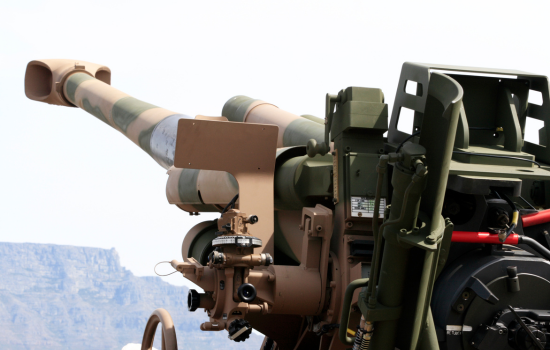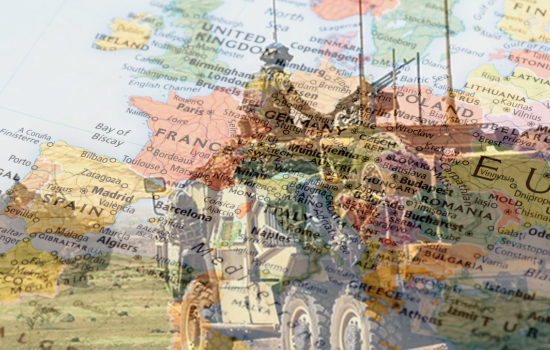Is Arafat Ready to Take on Hamas?
Whether or not a terror attack will take place is a function of two factors: the motivation of a terrorist organization to perpetrate attacks, and its operational capability of doing so at a given time. Since the establishment of the Palestinian Authority in 1994, Yasser Arafat has adopted a policy whereby he refrains from disrupting the military infrastructure of the Palestinian radical groups, Hamas and the Palestinian Islamic Jihad in the areas under his control. Thus, he was free to preserve the constant threat of terrorism as a bargaining chip to be used against Israel, acting to prevent attacks when it served what he saw as the Palestinian national interest. But whenever such prevention was necessary it was always accomplished through a policy of persuasion and threats—never by direct military action. Arafat managed to convince the leadership of the organizations that terrorist attacks at that time would harm the Palestinian interest—removal of Israeli forces from the territories, and the establishment of a Palestinian state with Jerusalem as its capital—and that he would be obligated to act against anyone attempting to perpetrate attacks, thereby risking civil war. At the same time, Arafat, who controlled the Palestinian media, worked to insure that the popular environment was not conducive to terrorist activity.
However, during the seven years that the Palestinian Authority has existed, Arafat never lifted a finger to curtail the ability of the terrorist organizations to carry out attacks. He never took real steps to disrupt the militants’ command centers, shut down their bomb factories, or prosecute the leaders of the organizations’ military wings. What actions he did take were always carried out “for the cameras,” and were rescinded or overturned as soon as the eyes of the world were elsewhere. Nor did Arafat ever do anything about gathering up the thousands of illegal weapons in the hands of militants, including those of his own Fatah organization—contrary to the terms of numerous agreements signed with Israel. Nor was anything done to prevent radical organizations from engaging in fund-raising or recruitment activities. On the contrary, the terrorist organizations have been allowed by Arafat to take root and grow in the soil of the Palestinian Authority. This was not a matter of weakness on the part of the Palestinian leader—it was not that he feared a confrontation with the fundamentalists. Rather, it was part of a calculated policy, whereby the threat of violence was held in check, to be used to put pressure on Israel at the appropriate time during the negotiations.
The violence and terrorism known as the “al-Aqsa Intifada” is a direct result of Arafat’s evaluation that violence and terrorism pays—that in the end, “the Palestinian national interests” will be better served by violence than by negotiations. Israeli governments over the years have been taken in by Arafat’s strategy of double-talk, and have time and again fallen into the trap of Palestinian violence laid for them. This has only served to strengthen the feelings of the Palestinians that more concessions can be won from Israel through violence and terrorism than through negotiations. The government of the late Yitzhak Rabin declared that, “negotiations will continue as if there were no terrorism,” thus neutralizing any motivation to refrain from terrorism. In fact, some politicians even used the occurrence of terror attacks as a reason for accelerating the negotiations, proving to the Palestinians that terrorism works. Even the much more hardline government of Binyamin Netanyahu fell into this trap, by withdrawing Israeli troops from Hebron only after the “Tunnel riots,” and signing the Wye Agreements only after the “Har Homa riots.” The government of Ehud Barak did not depart from this tradition of appeasement. This was evident after Arafat refused the far-reaching concessions offered at Camp David—including the establishment of a Palestinian state, a halt to settlement activity and the transfer of most Israeli settlements to Palestinian control, and the division of Jerusalem. When Arafat spurned this offer, choosing instead the path of violence, Barak rewarded him by offering even more at the Taba talks, including permission for a large number of Palestinian refugees to return to Israel within the 1967 borders, rather than to the new Palestinian state.
It’s difficult to unlearn the lessons of years all at once, and Israel is now paying for past mistakes. Israel and the Palestinians are now faced with a Catch-22 situation; no Israeli politician can afford to offer Arafat as much as what Barak was willing to give him. At the same time, Arafat cannot now accept less than what was previously offered him. Realizing this, Arafat’s strategy in initiating and directing the current violence is not to obtain further concessions, but to try to get the nations of the world involved, in order to force a solution on the parties. Such a solution would necessarily be based on a compromise, with Israel being forced to give the Palestinians more than what was offered at Camp David and Taba. In other words, from Arafat’s viewpoint, terrorism and violence will once more pay off, regardless of how many Palestinian or Israeli lives are lost along the way. In fact, the higher the casualties, the greater the urgency of an imposed solution.
However, Arafat’s plan backfired. In retrospect, the costs of his initiation of hostilities far outweigh any gains. The Arab world did not give him the support that he had expected; the European community saw through his double-dealing and refrained from giving him the hoped-for support; and the American administration made it clear that he would be judged by his deeds rather than by his words. What’s more, the Israeli society also did not react in the way that he had hoped; rather than collapsing in the face of the constant barrage of terrorism, the populace became more than ever convinced that Arafat had never intended to make peace with Israel. Even the Palestinian populace did not act according to plan. Despite Arafat’s attempt to present the hostilities as a “popular uprising,” most Palestinians did not take an active part in the violence, leaving the field to the radicals.
Things began to turn against Arafat in recent months. Pressure began being put on him by the United States after the September 11 attacks, by the European Community and by the Arab countries. Israel finally began to use real military pressure after the most recent series of terror attacks. On top of this, Arafat’s being grounded in the West Bank and his being declared “irrelevant” by Israel has injured his personal standing. All of this has contributed to Arafat’s readiness, for the first time, to call for a halt to terrorism against Israel. With the international community, and not only Israel calling on him to demonstrate his intentions with deeds, rather than empty words, Arafat has finally recognized the need to take concrete steps against the Islamist groups. A few terrorists have been arrested, a few bomb-making labs have been shut down.
This does not mean that Arafat has made a strategic decision to confront the fundamentalist Islamic terror groups. He is still not ready to use his considerable powers to diminish the military capabilities of these organizations in the autonomous territories; he is not willing to risk the civil war that might erupt as a result. For while Arafat would undoubtedly emerge victorious from such a war, he would never again be able to use the threat of Islamic terrorism to pressure Israel or the rest of the world. So Arafat contents himself with dealing the fundamentalist groups a slap in the face, together with a wink and a nod—threats and persuasion. The persuasion rests on the argument that now is not the time for severe terrorism inside Israel; the threat rests on the demonstrated capabilities of the Palestinian Authority to take on Hamas and the PIJ should the need arise.
What can be learned from the recent clashes between the PA and the Islamist organizations? First of all, there is the lthat concerted pressure on Arafat on the part of the U.S., the European Community, and the moderate Arab states, as well as Israel, can in the end, bear fruit. Arafat can be counted upon to act rationally—to choose the course of action whose benefits outweigh the costs. The next question is, will all this bring Arafat to finally destroy the infrastructure of the Palestinian terrorist organizations? If he does, then the policy of pressuring him to take action will have been borne out, and all of his arguments that he is powerless to combat the radicals will have been proved false. Time and again, the Palestinian leader has attempted to portray himself as the underdog, who despite the best of intentions, is simply incapable of tackling the terrorist organizations. This strategy not only allowed Arafat to win the world’s sympathy and slacken the pressure, but also enabled him to ask for outside help, from Israel and from other countries, in strengthening his military capabilities so that he could “combat terrorism.”
However, if after all this, Arafat chooses not to translate his declarations into deeds, and dismantle the military apparatus of Hamas and the PIJ, then only two conclusions are possible—either he can’t, or he doesn’t want to. If the answer is the former, and he is not capable of taking the necessary steps, then the Israeli government’s characterization of Arafat as “irrelevant” to any future political settlement will have been borne out. He simply cannot deliver the only thing that Israel has been after all these years—an end to Palestinian terrorism.
And if Arafat does not want to deal with the terrorist threat? Then we can only assume that the combined pressure brought to bear by Israel and the rest of the relevant parties has not succeeded in changing the cost-benefit equation enough for him to take the necessary steps. In which case, more will need to be done to motivate him to take the matter seriously.






